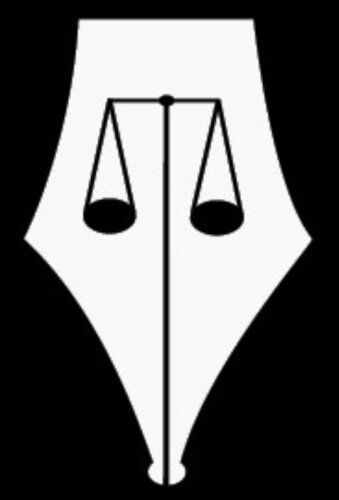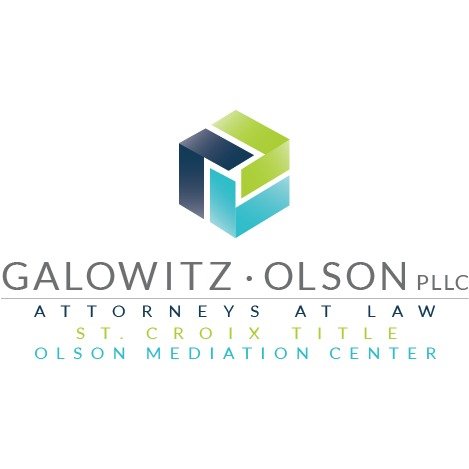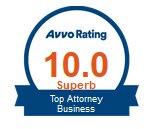Best Lawsuits & Disputes Lawyers in Minnesota
Share your needs with us, get contacted by law firms.
Free. Takes 2 min.
Or refine your search by selecting a city:
List of the best lawyers in Minnesota, United States
About Lawsuits & Disputes Law in Minnesota, United States
Lawsuits and disputes law in Minnesota covers the legal framework for resolving conflicts between individuals, businesses, or other entities through the state's civil court system. This area of law includes a wide range of cases, from contract disagreements and property disputes to personal injury claims and landlord-tenant issues. Minnesota has its own specific statutes and procedural rules that guide how such matters are initiated, managed, and resolved. Understanding these local nuances is key for anyone considering or facing civil litigation in the state.
Why You May Need a Lawyer
People seek legal assistance in lawsuits and disputes for many reasons. Common situations include:
- Being sued by another individual or business
- Wanting to recover money or property in a contract dispute
- Facing disagreements with neighbors or landlords
- Pursuing compensation for personal injury or property damage
- Challenging or defending against allegations of defamation
- Dealing with employment disputes or wrongful termination
- Needing help interpreting complex legal documents
A lawyer can help navigate Minnesota's unique court processes, ensure you follow correct procedures, gather necessary evidence, and build a strong case. Legal professionals also negotiate settlements and represent clients in court, increasing the chance of a favorable outcome.
Local Laws Overview
Minnesota's approach to lawsuits and disputes is defined by both state statutes and local court rules. Key aspects include:
- Statute of Limitations: Minnesota law sets deadlines for bringing different types of legal claims, often ranging from two to six years. Failing to act within these timeframes can bar you from pursuing your case.
- Small Claims Court: The state offers a simplified process for minor disputes involving claims of up to $15,000, called Conciliation Court. This function is designed for individuals and small businesses without requiring an attorney.
- Mediation and Arbitration: Minnesota courts encourage alternative dispute resolution (ADR) methods such as mediation and arbitration before going to trial, especially for civil disputes.
- Filing Requirements: Lawsuits begin with filing a Complaint and serving legal documents to the opposing party according to precise rules outlined in Minnesota's Rules of Civil Procedure.
- Attorney Fees: Generally, each party pays their own attorney fees unless a statute, contract, or court order provides otherwise.
- Jury Trials: Many civil cases can be tried by a jury if requested, but not all types of disputes qualify for this right.
Frequently Asked Questions
What is the difference between civil and criminal cases in Minnesota?
Civil cases involve disputes between individuals, organizations, or businesses regarding rights and obligations. Criminal cases are brought by the government and involve violations of criminal law. Lawsuits and disputes law is focused on civil matters.
How do I start a lawsuit in Minnesota?
A lawsuit starts by drafting a Complaint describing your claim, filing it in the correct Minnesota court, and properly serving the defendant with court papers according to Minnesota rules.
What is the maximum amount I can claim in Conciliation Court?
As of 2024, the maximum claim in Minnesota's Conciliation Court is $15,000, except for some property damage cases related to motor vehicle accidents, where a separate limit applies.
How long do I have to file a lawsuit?
Minnesota's statute of limitations varies by case type. For example, it's generally six years for contract disputes and two years for personal injury cases. Consult a lawyer or review state law to confirm the time limit for your case.
Do I need a lawyer to go to court?
While you can represent yourself (called "pro se" representation), having a lawyer is recommended, especially in complex or high-value cases. Lawyers understand court procedures, legal strategy, and can help protect your interests.
What if I cannot afford an attorney?
You may qualify for free or reduced-cost legal services through organizations like Legal Aid or find a lawyer willing to work on a contingency fee basis, especially for personal injury or certain civil cases.
What happens after I file a lawsuit?
The defendant must respond, either by filing an Answer or a motion. The case then moves through discovery, where evidence is exchanged, and potentially to mediation, settlement, or trial.
Can I settle my dispute without going to court?
Yes. Minnesota courts encourage parties to use mediation or direct negotiation. Settlements can occur at any stage, and most disputes are resolved before reaching trial.
Who decides my case, a judge or jury?
Depending on the case type and preferences of the parties, your case may be heard by a judge or jury. Some matters, like equitable relief, are decided only by judges.
How can I enforce a court judgment if I win?
If you receive a judgment, Minnesota law provides mechanisms for collection, such as wage garnishment or property liens. Some additional court procedures may be necessary to enforce the judgment.
Additional Resources
For more information or assistance regarding lawsuits and disputes in Minnesota, consider these resources:
- Minnesota Judicial Branch - Information on court forms, procedures, and Conciliation Court
- Legal Services State Support - Directory for free legal aid providers
- Minnesota State Bar Association - Lawyer referral and public education resources
- Minnesota Department of Human Rights - Support for discrimination and civil rights disputes
- Office of the Minnesota Attorney General - Guides and assistance for consumer-related disputes
Next Steps
If you think you need legal assistance for a lawsuit or dispute in Minnesota:
- Gather all relevant documents, contracts, correspondence, and notes related to your dispute
- Make a chronological summary of events
- Contact a reputable Minnesota attorney or legal aid service for a consultation
- Familiarize yourself with key court forms and deadlines
- Be proactive and respond promptly to legal documents or court notices
Taking these steps early can help protect your rights, improve your position, and increase the likelihood of a satisfactory resolution. Each case is unique, so individualized legal advice is recommended.
Lawzana helps you find the best lawyers and law firms in Minnesota through a curated and pre-screened list of qualified legal professionals. Our platform offers rankings and detailed profiles of attorneys and law firms, allowing you to compare based on practice areas, including Lawsuits & Disputes, experience, and client feedback.
Each profile includes a description of the firm's areas of practice, client reviews, team members and partners, year of establishment, spoken languages, office locations, contact information, social media presence, and any published articles or resources. Most firms on our platform speak English and are experienced in both local and international legal matters.
Get a quote from top-rated law firms in Minnesota, United States — quickly, securely, and without unnecessary hassle.
Disclaimer:
The information provided on this page is for general informational purposes only and does not constitute legal advice. While we strive to ensure the accuracy and relevance of the content, legal information may change over time, and interpretations of the law can vary. You should always consult with a qualified legal professional for advice specific to your situation.
We disclaim all liability for actions taken or not taken based on the content of this page. If you believe any information is incorrect or outdated, please contact us, and we will review and update it where appropriate.
Browse lawsuits & disputes law firms by service in Minnesota, United States
Minnesota, United States Attorneys in related practice areas.
Browse lawsuits & disputes law firms by city in Minnesota
Refine your search by selecting a city.












